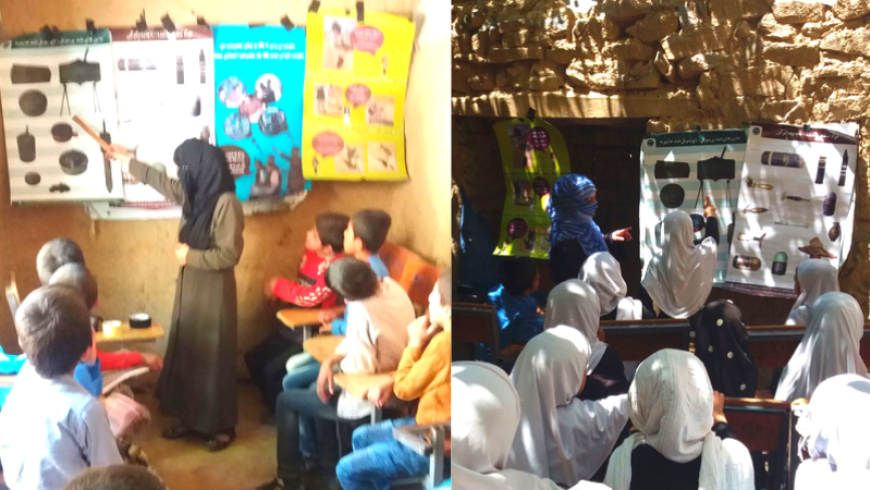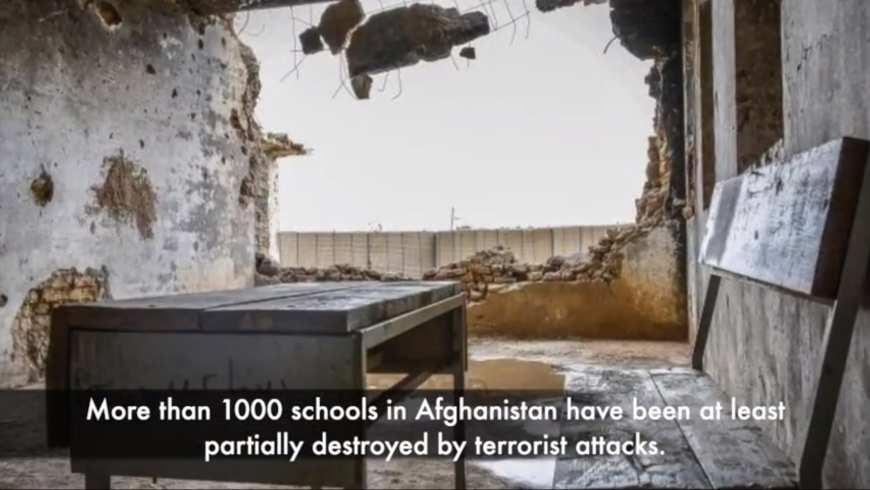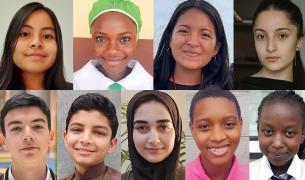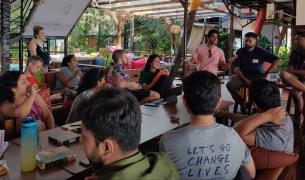When Schools are Targets: Training Teachers to Protect Their Students and Themselves
After Ramzia Haidari, a seventh grade teacher in the Bagram district of Parwan province, collected her students’ multiplication homework, she handed out worksheets for a very different kind of lesson. Like all Teach For Afghanistan fellows, part of Ramzia’s job is to prepare her students for the possibility that their school will be attacked by terrorists, and help them learn strategies to protect themselves and each other.
Education in Afghanistan has been under fire and subject to extensive attacks for decades. However, with the signing of the Safe Schools Declaration in May 2015, the government of Afghanistan made a significant commitment to strengthening protections for schools, universities, students, and teachers, and restricting the use of schools for military purposes. Afghanistan was one of the first countries to stand behind this international declaration for safe schools. However, instead of decreasing, attacks on schools in Afghanistan have multiplied. Last year, UNICEF reported that attacks tripled between 2017 and 2018, rising to 192 from 68, a surge not seen since 2015. “Every week we have a report about schools getting attacked in Afghanistan,” Nooria Nazhat, a spokeswoman for the Ministry of Education, has said.
There are roughly 17,500 schools across Afghanistan, but about 1,000 of them remain closed because of the ongoing conflict. In fact, in the last several months, 431 schools for both boys and girls have closed for “security issues,” according to the Ministry of Education. Among several other factors, one major factor in the sharp spike appears to have been the use of schools as voter registration and polling centres during elections. Terrorist groups have explicitly warned students and teachers not to allow their schools to be used for voting, but despite all the warnings and the commitment made in 2015, the government allowed schools to be used as polling stations during the 2018 parliamentary elections.
Devastatingly, the increased attacks against schools in Afghanistan have resulted in an estimated 3.7 million children out of school, and the Global Coalition to Protect Education from Attack included Afghanistan on its 2018 list of the 28 worst countries in the world for safety in schools. This environment of fear and danger, where children and their families are concerned about being attacked or kidnapped on their way to school, has a serious impact on the attendance and learning outcomes of children, and decreases the possibility that they will continue their education.
At Teach For Afghanistan we believe that education can save lives, and that out of school children are easy targets for recruitment by armed forces, abuse, and exploitation. Therefore, with the increasing attacks against education, we train our fellows to help protect themselves, their students, and the schools where they teach. Teach For Afghanistan fellows do not only provide quality education, but also work together with their students’ parents, their co-teachers, school leadership, and the local communities to ensure the safety of their students. The security trainings are part of the two years of support and development provided to all Teach For Afghanistan fellows, who also receive trainings in pedagogy, educational psychology, management, and leadership.

Teach For Afghanistan fellows are also taking action to help protect their students themselves. One fellow, Aqila, designed and delivered a training to her students on how to protect their community, family members, and friends from the landmines that were planted along their route to school to discourage students from attending. Aqila focused on helping her students understand the danger and how to protect themselves by not touching anything on their way to school, and following the safe path instructions. Other Teach For Afghanistan fellows and alumni are also helping raise awareness among community members and elders on how to protect the schools within their villages from attack.
Children across Afghanistan are at risk, but the situation is even more serious and threatening for girls and female teachers that are often directly targeted. Extremist groups have bombed or set fire to all-girls schools, and they have threatened, injured, or killed girls and female teachers. In Afghanistan, one in four reported attacks on schools were attacks on all-girls schools. Earlier this year, on August 21, about 180 girls did not sit for the National University Entrance Exam (Kankor) in Badakhshan due to threats by terrorist groups to fine every girl who sat for the entrance exam 80,000 AFN (about $1,000 USD).
Many parents fear for their children’s security, especially their daughters who are targeted with acid and other attacks. As a result, Teach For Afghanistan fellows work closely with their students’ parents to encourage them to keep their children in school and not let them drop-out. The female fellows are also powerful advocates for the importance of girls’ education and play great role in raising community awareness of the additional risks girls face in accessing education and gathering support from parents, elders, and community members to help keep girls protected and learning.
In an era of war, a failing economy, over 50% of the population living in poverty, and a heavy dependence on multilateral funding, Afghanistan’s young people remain its only hope, and education is the key to their success. Despite the challenges they face, children in Afghanistan are still eager for an education and hopeful about their future, but continuing attacks on schools could be the final straw that leaves the country and its next generation with no hope of any peace or development in the near future.
As the peace process is underway in Qatar, civil society representatives, international partners of Afghanistan, and the nation’s people are demanding that schools, students, and teachers be protected. As a first and immediate step, the government of Afghanistan needs to stop using schools for elections or any other military or political purposes. Additionally, all 100+ countries that signed the Safe Schools Declaration need to commit to making the changes laid out in the declaration and push their fellow signatories to take the actions they committed themselves to in 2015.
At Teach For Afghanistan, we’ll continue to support and train our fellows to teach their students how to protect themselves from attack, and we’ll continue to work towards the day when every school is a safe haven for the children and teachers who enter its doors each day.




